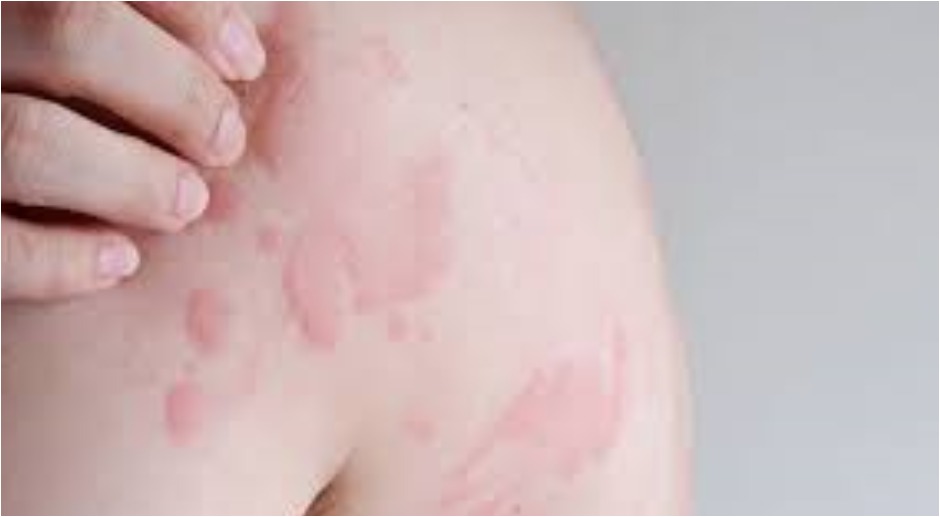
Urticaria, commonly known as hives, is a type of skin allergy characterized by the body’s hyper response to various stimuli, which are typically harmless and common in the environment. These stimuli can include substances like dust, dirt, pet fur, pollen, changes in weather, and more. When the body comes into contact with these triggers, it reacts by releasing histamine and other chemicals into the bloodstream, leading to inflammation. The accumulation of fluid under the skin results in the appearance of red, raised, and itchy welts or hives.
Urticaria can be caused by a wide range of factors, and its triggers may vary from person to person. Sometimes, identifying the exact cause is straightforward, as hives appear immediately after exposure to the allergen. However, in other cases, it may require a detailed history-taking during a medical appointment or maintaining a systematic diary for days or weeks to pinpoint the specific trigger.
Common triggers for urticaria include:
- Medications: Allergic reactions to antibiotics, Non-Steroidal Anti-Inflammatory Drugs (NSAIDs), or vaccines can lead to urticaria.
- Insect stings: Being stung by insects like bees or wasps can trigger an allergic reaction and result in hives.
- Temperature changes: Sudden shifts in temperature, both hot and cold, may provoke urticaria in some individuals.
- Food: Certain foods such as shellfish, nuts, wheat products, food additives, and cow milk protein can be triggers for hives.
- Secondary infections: Infections can exacerbate or trigger urticaria in some cases.
- Sunlight exposure: Some people may experience hives when exposed to sunlight, a condition known as solar urticaria.
- Allergens: Pollen, dust mites, and other environmental allergens can induce urticaria in susceptible individuals.
- Stress: Emotional stress and anxiety can contribute to the development or worsening of hives.
- Animal-related allergies: Allergens from pets like cats and dogs may trigger urticaria in sensitive individuals.
- Chronic illnesses: Conditions like thyroid disorders can be associated with chronic urticaria.
Individuals experiencing urticaria should seek medical attention to determine the triggers and develop a management plan. Avoiding identified triggers and working closely with healthcare professionals can help in minimizing the frequency and severity of hives, leading to improved quality of life.
